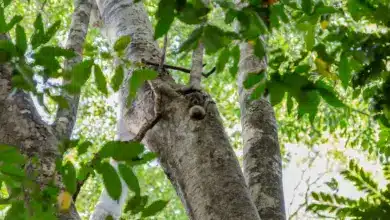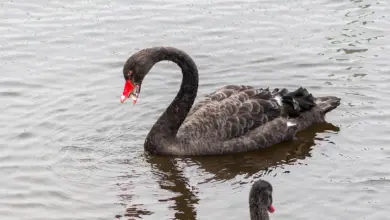ECOTOURISM AND WILDLIFE TRAVEL

Nature Travel: Wild Animal Ecotourism Adventures Around America And The World
SCROLL DOWN FOR DESTINATION SUGGESTIONS!
Wildife ecotourism can be local or exotic, and as complicated as an organized African safari, or as simple as driving to a nearby town to take a walk in the woods. Environmental tourism can also add wear and tear to already fragile ecosystems—or it can play a vital role in preserving those same ecosystems, depending on how it’s done.
Many types of wildlife tourism fit beneath the eco-travel umbrella. International birding, or bird-watching, fits as easily into the nature and wildlife-travel category as do snorkeling and scuba diving in Caribbean or other tropical waters, traveling by boat through either the Everglades or the Amazon rain forest, viewing whales and fish or swimming with dolphins at a marine park, or visiting Yellowstone National park to see buffalo, elk, bears and wolves.
When done properly, environmental tourism, or nature and wildlife travel, can provide the traveler with a “green” vacation that is healthy for both the environment and the ecotourist or green traveler him- or herself. For instance, the people in or near many wildlife parks or other wildlife-rich areas around the world depend on the money that ecotourists bring when they come to view the wild birds, fish and animals. This money provides a powerful incentive for local peoples in such places as rural Africa, South America and Asia to preserve, rather than to hunt, trap or otherwise exploit the wild animals in the nearby rainforest, coral reef, mountain forest, river, or other natural ecosystem.
On the other hand, environmental and nature tourism, when done improperly, can result in the harassment of wildlife, including the disruption of their feeding and breeding, damage or destruction to wildlife habitat due to overuse and other abuse—and even loss of support for wildlife from local people offended at the way they’ve been treated, either by their government or by the ecotourism industry itself.
It is therefore the responsibility of every ecotourist, wildlife and nature tourism traveler or vacationer, as well as each environmental or adventure traveler or tourist, to carefully research their trip before they commit to taking it. Make sure that it truly is a “green” trip—that the wildlife travel or ecotourism operator is a reputable person or organization with a true concern for the environment and for the wildlife that you plan on visiting.
Below you’ll find links to some short articles on ecotourism and wildlife and nature-related travel trips that we at AllAboutWildlife.com either have knowledge of ourselves, or would be interested in taking. Again, please carefully research any wildlife trip that you plan on taking, both for your own safety and financial well-being, as well as for the safety and well-being of the people, natural areas and creatures that you hope to visit.
East Africa: Classic safari-style wildlife tourism on the Serengeti plains.
Southern France: Viewing long-extinct wildlife through the eyes of the earliest Europeans.
South America: Viewing wildlife in Brazil’s vast Pantanal grassland.
North America: Into the more remote corners of Yellowstone National Park by horseback and mule pack.
North America: Some high-end ecotourism in Alaska.
North America: A fishing trip to the Appalachian Mountain Club’s Little Lyford Pond Camps in Northern Maine.
Australia: The Great Barrier Reef may well be the world’s finest aquatic ecotourism destination.



